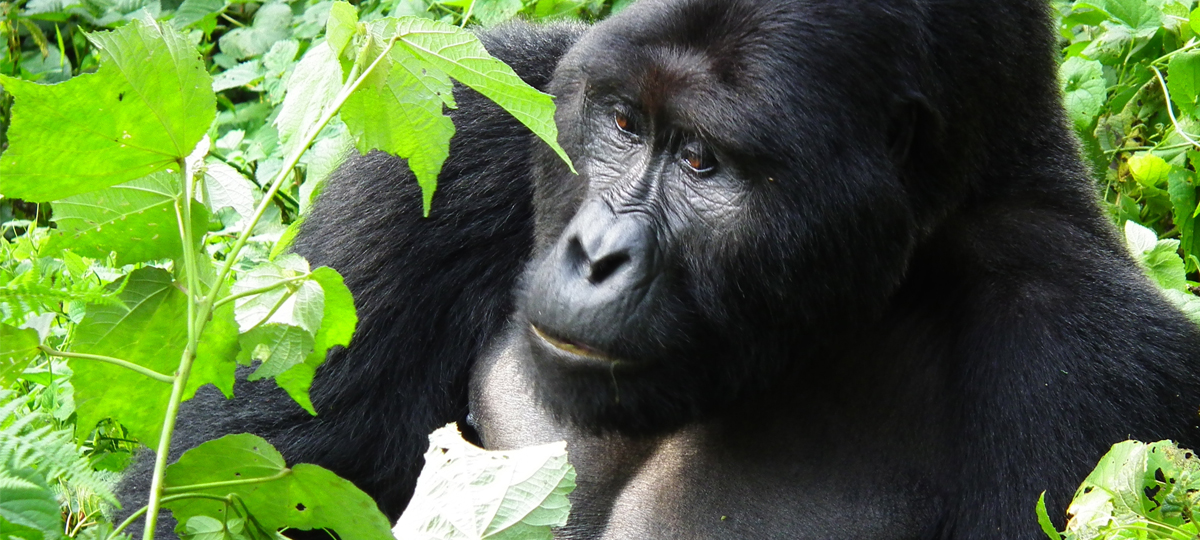TRAVEL TIPS - UGANDA
Time Zone
GMT +3 HOURS
Language
English is the official language in Uganda. Though Kiswahili is considered the second official language, Luganda is more widely spoken.
| English | Luganda | |
|---|---|---|
| I would like | njagala | |
| I do not want | ssagala | |
| Coffee | kahawa | |
| Tea | chai | |
| Please | kwegairidde | |
| Milk | mata | |
| How much? | Mekka? | |
| Food | mele, (pronounced mere) | |
| A drink | ekyokunywa | |
| It is a reasonable price | eyo bei nungi | |
| It is very expensive | ezzo sente nyingi (pronounce nyinji) or nga osera | |
| I would like a cold beer | mpa beer enyogoga | |
| Money | sente | |
| I would like a taxi | nsobola kufuna taxi | |
| I cannot eat meat | sisobola kulia nyama |
Currency
In Uganda the unit of currency is the Ugandan shilling. Notes are issued in denominations of 1,000 2,000 5,000, 10,000 20,000 and 50,000 Shillings. Coins are issued in denominations of 100, 200 & 500 shillings.
Money Matters
The unit of currency is the Uganda shilling. US dollars, Euros and Pound Sterling are all widely accepted. Hard currency cash can be changed for the local currency at any of the banks and forex bureaus in all the towns within Uganda, although one will find difficulty using travellers’ cheques outside of Kampala. You can draw the Ugandan Shilling against Visa and other major credit cards at selected bank ATMs in Kampala, Entebbe International Airport, as well as in other larger towns outside of the Capital.
Weather
Best time to go: December to February, June to September
Uganda can be visited all year round. Situated astride the Equator, the country enjoys a tropical climate with very little temperature variation throughout the year.
December to February and June to September are considered as the best time to go to Uganda because the rainfall is less. In the southern part of the country, April is the rainiest month however, the rains often run into May, with another wet season in October and November.
Although the dry months are good for gorilla trekking and birding, you might see more during the wet months since this is when breeding occurs.
Clothing
During the day, temperatures are generally warm depending on which region of the country one is at, so bring lots of light clothing. Evening temperatures are cooler at especially high altitudes, so it is advisable to bring a couple of sweaters and a down jacket as well. For the tourist intending to hike or climb on the mountains, you are advised to pack accordingly due to the alpine temperatures. You would do well to carry solid walking shoes and strong clothing, a sun hat, sunglasses, and a waterproof jacket which are ideal for forest walks, game drives and national park tours.
Health
Yellow Fever: If you are arriving in Uganda (or planning to re-enter) from a country where yellow fever is endemic (such as Sudan, Tanzania, Kenya, Zanzibar or Zambia) you are required to have a yellow fever vaccination; and it must be administered at least ten days before your arrival (or re-entry) into Uganda. If your travel itinerary requires you to have a yellow fever vaccination, you must ask your doctor to provide you with an "International Certificate of Vaccination," which should be carried with you while travelling. If proof of vaccination is required and you do not carry it with you, you may be denied entry into the country. Please note that, even if you are not required to obtain a yellow fever vaccination for your tour in Uganda, it is recommended that you take the vaccination.
Malaria: it is highly recommended that you to take precaution against malaria by taking anti-malarial two weeks before arrival. Sleep under a mosquito net always.
Water: Although tap water in most places can be drunk without problems, you are advised to drink bottled mineral water.
Swimming: if intending to swim in any lake, precaution should be taken against Schistomiasi (bilharzia).
It is also recommended that all international travelers ensure that their tetanus, Hepatitis A, and polio vaccines are up to date.
For up to date information on latest health and vaccination recommendations, please contact your doctor.
Photography
We recommend that you bring all the photographic equipment you will need from home including an ample supply of memory cards and rechargeable batteries. Sun filters will help block glare and heat haze; a wind reduction filter may be useful for video cameras. A dust proof camera bag (or some ziplock plastic bags) and an air brush will help protect your equipment from heavy dust.
Please be careful not to disturb the animals by making unnecessary noises or commotion. Flash photography is prohibited when tracking gorillas. When photographing people, especially members of the local tribes, always ask permission first. Always be considerate of anyone's desire not to be photographed.
Arrival and Departure Formalities
Each traveller must be in possession of a passport that will remain valid for at least six months beyond the completion of his/her trip. All visitors to Uganda are required to have visas. However, there are certain exemptions. Consult the Ugandan embassy or tourist office near you for entry requirements.
Local Food
As a country, Uganda is stunningly lush, and all sorts of fruits and vegetables grow within its borders. Matoke (bananas of the plantain type) are the country’s national dish. Uganda grows lots of tropical fruits which include mangoes, paw paws, oranges, tangerines, avocados, jack fruits, lemons, sweet banana, sugar cane, varies types of berries, guava and pineapples. There are varieties of fruits always in season and being sold on stalls all over the country especially on the roadside. Please remember to wash your fruit before eating it.




